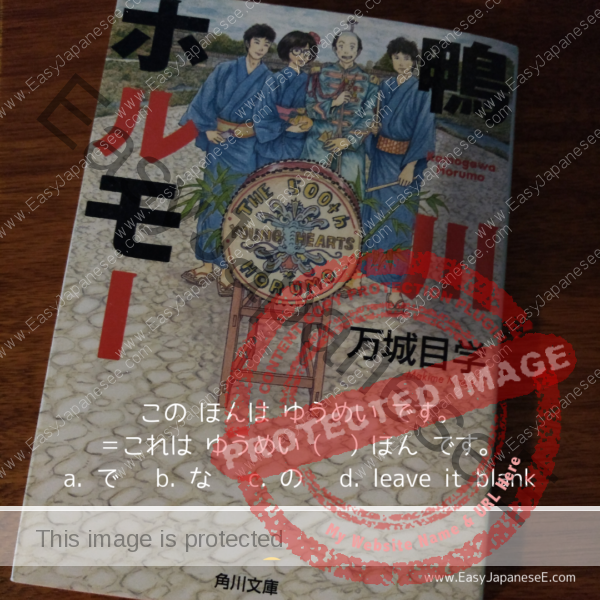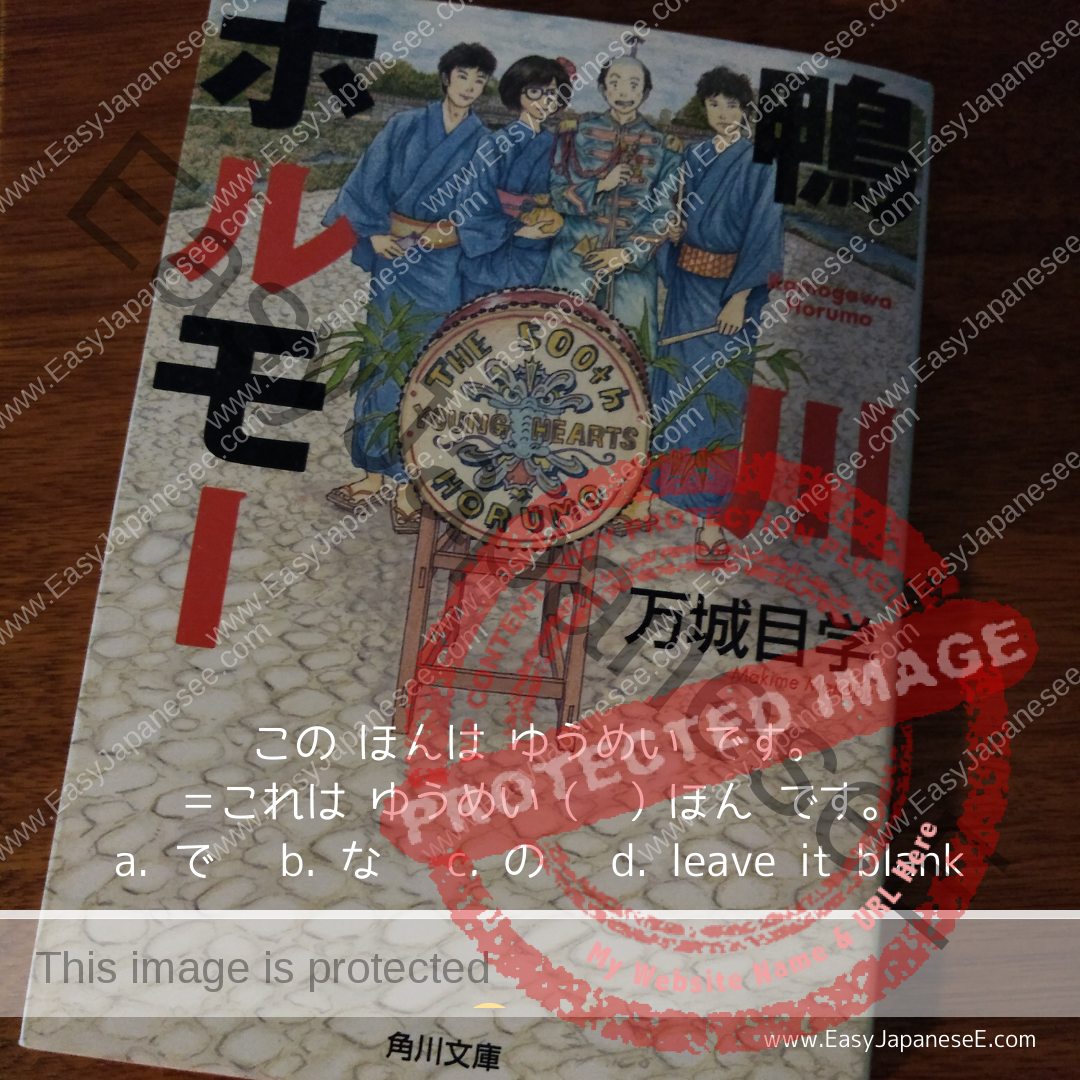Today’s Question
このほんはゆうめいです。
=これはゆうめい( )ほんです。
a. で b. な c. の d. leave it blank

Today, I’m going to talk about 2 things. One is about ゆうめい and the other about この/これ.
いadjectives and なadjectives
Adjectives are describing words. They are used to describe a noun. In the following pair, the bold word つめたい/cold is the adjective and the underlined word みず/water is the noun that つめたい/cold is describing.
この みず は つめたい です。 This water is cold.
これ は つめたい みず です。This is cold water.
In the above pair, the top sentence has the adjective between は and です (“predicative use”) and the second sentence has the adjective immediately before the noun (“attributive use”).
In Japanese, there are 2 different types of adjectives, いadjectives and なadjectives. いadjectives all end in the Hiragana い (thus they are called いadjectives) and なadjectives are usually* made of all Kanji (even though they are written in Hiragana here) or all Katakana, and they behave VERY differently. The definitive difference appears in front of a noun (in the “attributive use”); that is, only なadjectives need な if they are used in front of a noun, thus they are called なadjectives!
Answer to Today’s Question: b. な
Although ゆうめい ends in -い when written in Hiragana, normally it is written 有名 in Kanji and means “famous” or “well-known” and it is a なadjective. That means, you need な between ゆうめい and the noun after, which is ほん here.
Adjectives are describing words. They are used to describe a noun. In the following pair, the bold word つめたい/cold is the adjective and the underlined word みず/water is the noun that つめたい/cold is describing.
この みず は つめたい です。 This water is cold.
これ は つめたい みず です。This is cold water.
In the above pair, the top sentence has the adjective between は and です (“predicative use”) and the second sentence has the adjective immediately before the noun (“attributive use”).
For a list of なadjective which ends in -い, click here.
* The only なadjective that ends in the Hiragana -い and that you need to know as a beginner is 嫌い (dislike, unfond).
More examples
[なadjectives]
この ほんは ゆうめい です。This book is famous.
これは ゆうめいな ほん です。This is a famous book.その もんだいは かんたん です。This question is easy.
それは かんたんな もんだい です。This is an easy question.あの かばんは じょうぶ です。That bag is strong.
あれは じょうぶな かばん です。That is a strong bag.あの こうえんはしずか です。That park is quiet.
あれは しずかな こうえん です。That is a quiet park.
[いadjectives]
この みずは つめたい です。 This water is cold.
これは つめたいみず です。This is cold water.この ケーキは おいしい です。 This cake is delicious.
これは おいしい ケーキ です。This is a delicious cake.この セーターは あたたかい です。This jumper is warm.
これは あたたかい セーター です。This is a warm jumper.その ものがたりはみじかい です。That story is short.
それは みじかい ものがたり です。That is a short story.あの まんがは つまらない です。That cartoon is boring.
あれは つまらない まんが です。That is a boring cartoon.
Today’s point: a なadjective needs な if it’s used in front of a noun.
I will talk about other differences between いadjectives and なadjectives at another time.
Suggested activities
If a sentence below starts with この、その、あの, change it to a sentence starting with これ、それ、あれ or vise-versa. Check your answer with above examples.
- あの かばんは じょうぶ です。
- あの こうえんは しずか です。
- あれは つまらない まんが です。
- この セーターは あたたかい です。
- この ほんは ゆうめい です。
- この みずは つめたい です。
- これは おいしい ケーキ です。
- その もんだいは かんたん です。
- それは みじかい ものがたり です。
Related Posts
You can try doing Exercises 4 to 8 of Module 2 of the Moodle Course.


4 Replies to “いadjectives and なadjectives”